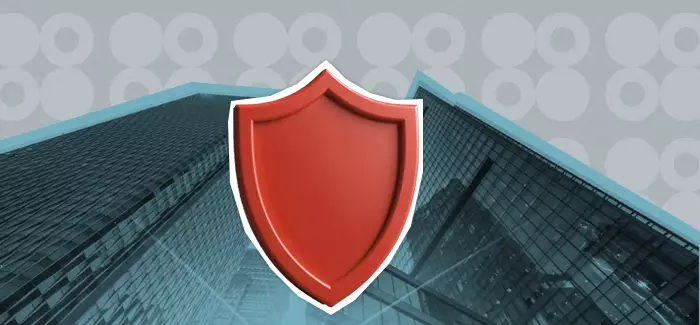Articles > Criminal Justice¬Ý>¬ÝCareers in corporate security
Careers in corporate security

Written by Dillon Price

Reviewed by¬ÝChris Conway,¬ÝDirector of Financial Education Initiatives and Repayment Management

If you’re seeking a career where strategy enhances security and benefits the bottom line, you may want to consider corporate security careers. These roles are typically at the front line of protecting businesses, employees and assets. Here’s what you should know.
What is corporate security?
Corporate security goes beyond locked doors and internet firewalls. It’s about protecting the core of a company: its people, data and resources. With cybercrime projected to rise, the expansion of remote work and technology ever evolving, businesses face new security challenges every day.
Strong security measures can help protect businesses in a variety of situations. For example, IT teams protect sensitive data, security staff protect office spaces, and response protocols help provide a clear action plan in a crisis.
Generally, corporations follow one of the following security models:
- Centralized model: Security is managed in-house with a dedicated team and a leader overseeing operations.
- Distributed model: Security responsibilities are shared between a central team, business units and external contractors.
- Governance and oversight model: Businesses outsource security services with a small internal team overseeing compliance and vendor management.
Importance of corporate security in today’s business environment
Businesses face the risk of data breaches, unexpected emergencies and other potential disruptions that can slow down or halt operations. Without setting safeguards, a single security breach or workplace incident can lead to financial loss, reputational damage or even physical harm in some cases.
As executives, employees and company assets may face an increasing wave of threats, business security continues to grow in importance. Companies can be targeted by disgruntled employees, dissatisfied customers or mentally unstable individuals.
Additionally, leaders of small companies could mistakenly believe their businesses are too small to be targeted or that basic security measures are enough. However, cybercriminals target companies of all sizes, whether they are startups, nonprofits or multinational corporations. No matter the company size, security moves beyond luxury and toward necessity.
Types of common security measures in businesses
Company security relies on strong legal strategies, risk management and company-wide collaboration to help keep businesses safe. Common corporate security services and measures include:
- Implementing legal measures: Companies should comply with data privacy laws, workplace safety regulations and industry standards. Compliance measures help protect companies’ reputations, employees and customers.
- Managing security risks: Cybercriminal tactics are always evolving. For up-to-date protection, companies should routinely check for vulnerabilities, address system gaps and optimize firewalls and surveillance systems.
- Integrating security into daily operations: Employees should take part in maintaining security by following IT security protocols, protecting customer and company data, and recognizing and reporting suspicious activity.
- Encouraging collaboration across teams: Security isn’t just an IT responsibility; it’s a company-wide effort. Departments can share threat intelligence, conduct incident drills and work together to strengthen security protocols.
- Adopting active loss-prevention strategies: Businesses (particularly retail) may implement access controls or storefront protections and leverage advanced technology to safeguard assets and information.
- Maintaining on-site security: Some organizations may choose to include security guards on the premises to discourage or manage physical threats.
Why do businesses need corporate security?
Companies that take security seriously may avoid costly disruptions, build trust with customers and provide a safe environment for employees. A well-rounded security plan can keep both physical and digital assets safe. That includes office buildings, equipment and inventory.
However, it also extends to customer records, financial information, intellectual property and other sensitive data. A single breach can potentially cost a company millions of dollars and damage its reputation.
Additionally, a secure workplace may discourage crime. When businesses install access controls, surveillance systems and security personnel, they can help mitigate the chances of theft, vandalism or even workplace violence.
Finally, customers today want to know their data is safe. Companies that fail to protect sensitive information risk losing business and damaging their credibility.¬Ý
What tools and components does corporate security require?
Effective business security typically requires a multilayered approach that can safeguard companies physically, digitally and beyond. Below are some measures corporations can implement to protect themselves against unexpected threats.
Physical security measures
Protecting a company’s physical assets starts with access control, surveillance and security personnel. Physical security measures may include high-resolution cameras and AI-driven sensors that identify unauthorized individuals and potential threats.
AI-powered systems can recognize familiar faces, detect unusual activity and send real-time alerts to security teams. This technology can help reduce the need for constant human monitoring and enables quick responsive measures.
Cybersecurity strategies and protocols
With businesses relying heavily on technology, protecting digital information is just as important as securing physical spaces. Information security technology helps prevent cyberattacks by identifying system vulnerabilities, implementing protective measures and responding to breaches.
This technology can protect sensitive company and customer data from hackers, malware and other cyber threats. Businesses should also implement regular software updates, strong authentication protocols and employee training about cybersecurity risks.
Emergency response planning and risk assessment
Emergency planning in a corporate setting is an ongoing process that demands vigilance, adaptability and cross-departmental coordination. It starts with assessing network assets, physical infrastructure and access controls to identify vulnerabilities.
Additionally, staying ahead of cyberattacks, insider risks and third-party weaknesses requires a strong incident response framework, clear escalation procedures, defined roles and reliable communication during emergencies.
Continuous monitoring and routine cybersecurity assessments establish a security baseline and can help corporate teams track progress and strengthen defenses.¬Ý
What are common corporate security careers?
Security careers in a corporate setting are a potential option for anyone pursuing a criminal justice degree. Below are some common security management roles that take the lead in protecting companies, employees and customers.
Director of corporate security
Security directors typically lead an organization’s strategy to protect its employees, assets and operations. This role develops and refines policies, procedures and monitoring practices.
They may also oversee both internal and external investigations, while serving as the main point of contact with law enforcement. Additionally, they may set clear business objectives and mentor security teams to reduce potential risks.
This position typically requires a bachelor’s degree or a strong security background in a corporate setting, law enforcement and leadership. Some employers may prefer a master’s degree.
Security management director
A security management director helps ensure that employees, assets and operations stay secure in case the unexpected occurs. This role requires quick thinking, strong leadership and the ability to adapt to emerging security risks.
Security management directors analyze risks by conducting audits and reviewing security measures. Additionally, they look for weak spots before they become serious problems, as well as develop response plans that prepare businesses for cyber threats, workplace incidents and even natural disasters.
Beyond crisis management, this role involves shaping security policies, managing budgets and implementing new surveillance systems and cybersecurity defenses. Candidates looking to get started in this role may need a criminal justice degree and relevant work experience.¬Ý¬Ý
Asset protection manager¬Ý
An asset protection manager safeguards a retail store by preventing theft, ensuring security and establishing a safer environment for employees and customers. This role involves developing strategies to reduce shrinkage, training staff on security best practices and collaborating with store leadership to protect merchandise and people.
Additionally, asset protection managers oversee security operations, monitor inventory trends and investigate theft or fraud while ensuring compliance with policies and laws.
There are no specific education requirements for this position. However, many employers seek postsecondary education and experience for these management positions. If you’re seeking to equip yourself with skills such as risk and incident management, planning approaches, strategic planning and more, you may want to consider a master’s program that teaches these skills.
Additional qualifications include knowledge of physical security systems (e.g., alarms, electronic article security, CCTV and locks), decision-making abilities and adaptability to changing priorities. More than just security, this role is about building relationships with employees, customers and law enforcement to maintain a safe and trustworthy space.¬Ý
Loss prevention manager
Loss prevention managers typically protect a company’s assets by creating and enforcing policies that reduce theft, fraud and financial loss. They also assess risks, investigate security breaches and ensure employees follow loss prevention protocols.
Additionally, this role involves analyzing cash discrepancies, tracking inventory and working with retail managers to improve safety measures. Beyond security, loss prevention managers educate employees on best practices, use technology to monitor and prevent loss, and maintain detailed records of investigations.
This role typically requires a high school diploma or GED paired with experience in retail and loss prevention. However, because this is a management role, some employers may prefer candidates with a degree in criminal justice or a relevant field. For example, if you obtain a Master of Science in Administration of Justice and Security you may take courses in public safety, criminology, crime prevention, risk mitigation, investigation and more. Preparing yourself with these skills can make you a desirable candidate to an employer looking for someone well-versed in these topics.
Ready to learn more about corporate security?
If you‚Äôre ready to learn more about corporate security, ∆þ…´ ”∆µ offers several criminal justice degree programs. That includes the¬Ýonline master 's in administration of justice and security, which teaches leadership, policy development and problem-solving skills.
Looking for more information about UOPX‚Äôs online degrees? Reach out to request information about how to enroll.¬Ý

ABOUT THE AUTHOR
Dillon Price is a detail-oriented writer with a background in legal and career-focused content. He has written and edited blogs for dozens of law firms, as well as Law.com. Additionally, he wrote numerous career advice articles for Monster.com during the company‚Äôs recent rebranding. Dillon lives in Western Massachusetts and stays in Portugal each summer with his family.¬Ý

ABOUT THE REVIEWER
Christina Neider is the dean of the ∆þ…´ ”∆µ College of Social and Behavioral Sciences.¬ÝNeider‚Äôs career spans more than 30 years in academia, healthcare and the U.S. Air Force. She has held several academic leadership roles at ∆þ…´ ”∆µ, and she is the Vice President of membership for the Arizona Chapter of the Healthcare Information and Management Systems Society.
This article has been vetted by ∆þ…´ ”∆µ's editorial advisory committee.¬Ý
Read more about our editorial process.


